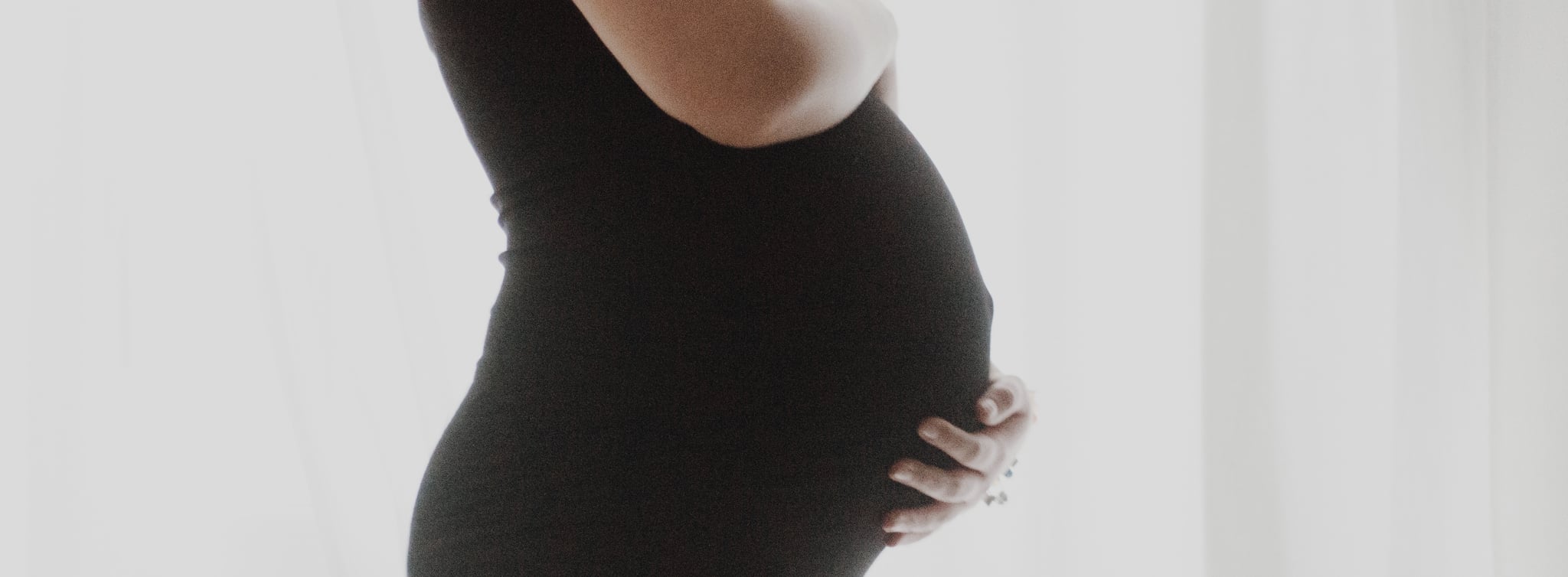
Pros and Cons of Being an Older Mom
The Complicated Tradeoffs That Come With Being an Older Mom
"You can't start your family at 40 and reasonably expect to have five kids," said Christina E*, a mom who had her first child at 38. Fewer children was one of the cons she weighed against the benefits of delaying motherhood. On the pro side? She saw paid-off student loans and more freedom in her 20s and 30s to rack up life experiences.
In 1970, the average age of a first-time mother in America was 21.
In 1970, the average age of a first-time mother in America was 21. For many women of childbearing age today, that probably sounds incredibly young. Over the past five decades, women have delayed having kids. Why? In 1965, the Supreme Court ruled that married women had a right to birth control. In 1972, the Court recognized that right for all citizens. And in 1973, Roe v. Wade made abortion legal across the United States. In the decades following, women had greater education and career opportunities. The cost of raising a child also became more expensive, making young parenthood unaffordable, and we still don't have mandated paid parental leave or child-friendly workplace policies in America. Now women have many reasons to wait, and for the first time ever, women in their 30s are having more children than women in their 20s.
There are tradeoffs that come with delaying motherhood, including having fewer kids or less time for your children to spend with their grandparents. It can be harder to conceive, you may face more health problems during pregnancy, and the risk of chromosomal issues for the child rise with the age of the mother. Specific everyday emotional and physical challenges, like relating with younger parents or keeping your energy up, also come with parenting when you're older. But while many of these challenges are well known, not as much attention has been given to the benefits of older parenthood — until recently. Now researchers are saying that the added benefits, like more financial stability, likely outweigh those risks. To get a complete picture, I dove into what this research says, while also talking to women who have become mothers later in life. If you're thinking about waiting to have kids, their insight is invaluable.
The Numbers
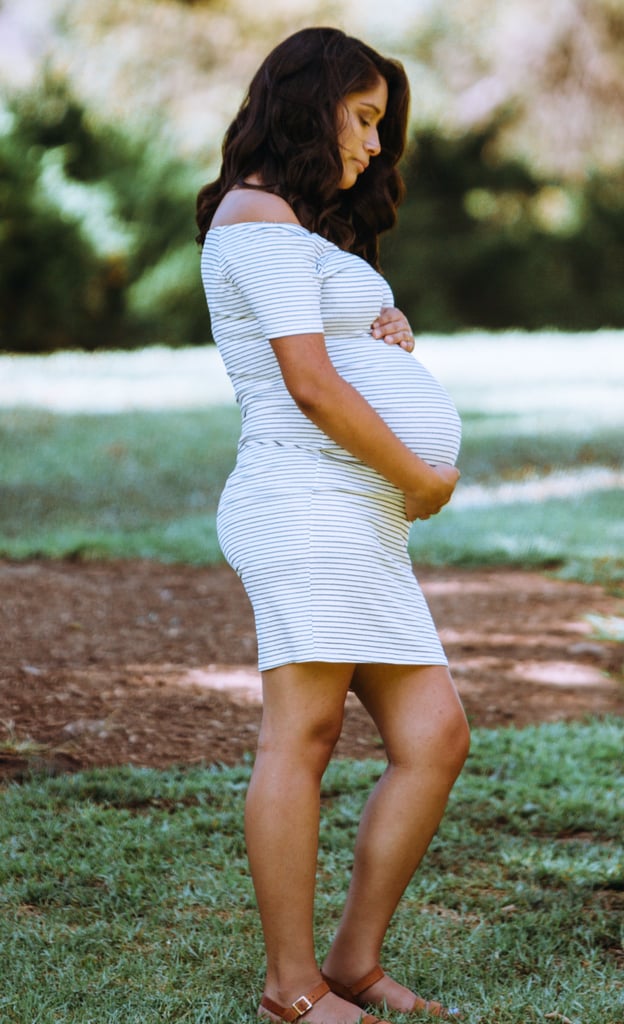
Let's start by looking at the hard numbers.
- 26.8 years old is the national mean age for first-time moms, a record high.
- The teen birth rate has fallen to a new low each year since 2009 and has declined 70 percent since 1991.
- The birth rate for women in their 20s was also at a record low in 2017 and has been declining since 2006.
- 2016 marked the first time in the US in which more women had babies in their 30s than in their 20s.
- Women are having fewer babies overall, with the total US fertility rate at 1.8 births per woman, an all-time low.
- For doctors, 35 is the age you officially become an "older mom." If you're pregnant, your chart will say "advanced maternal age," and the term "geriatric pregnancy" could also be used.
- The birth rate for women aged 40 to 44 has risen almost every year since 1985.
- The average age of first-time fathers is also rising from 27.4 in 1972 to 30.9 in 2015. But the age gap between mothers and fathers is decreasing.
Geography and Education Matter
There is clearly a national trend toward older motherhood, but in cities and on the coasts, it's even more pronounced. Recently, The New York Times produced an interactive tool to see the average age of first-time moms by US county. San Francisco County comes out on top, at 31.9 years old for all first-time moms, 32.8 years old for first-time moms who are married, and 33.4 years old for first-time moms with college degrees. Right behind San Francisco are Manhattan, Pitkin County, CO, and Falls Church City, VA.
If a woman has a college degree, she is likely to have her first child an average of seven years later than a woman without one.
By looking at all birth certificates in the US from 1985 onward, the NYT found that in addition to geography, education is a strong indicator of when a woman will start her family. If a woman has a college degree, she is likely to have her first child an average of seven years later than a woman without one. According to the book Red Families v. Blue Families, older mothers also tend to be liberal and share the work inside and outside the home with their partners, while younger mothers tend to be more conservative and follow traditional gender roles.
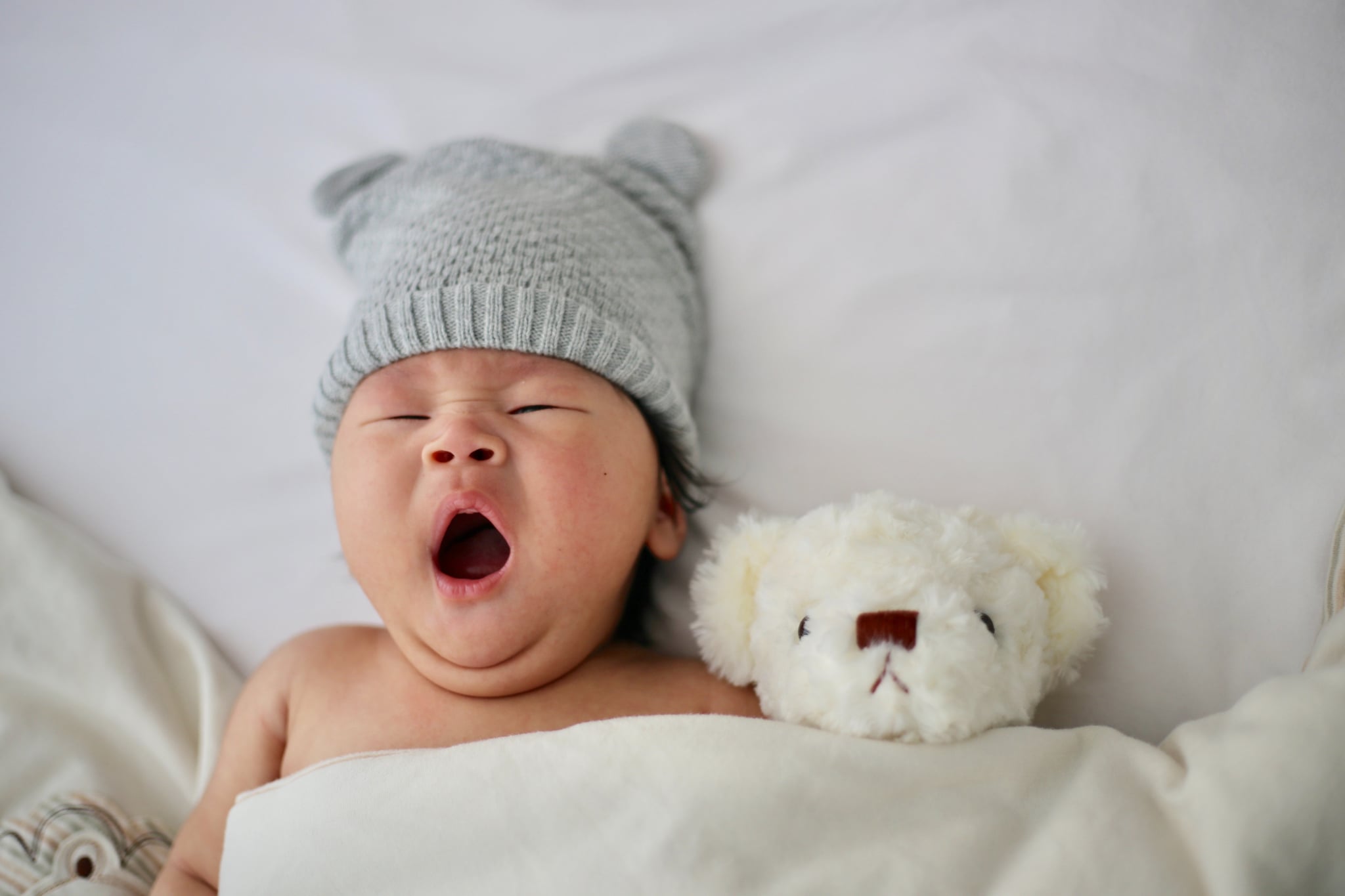
What Studies Say About the Pros and Cons
The medical community has often treated later motherhood as a health risk for the baby and the mother, as one 2017 academic literature review pointed out. Instead of taking that approach, the authors of the "Advantages of Later Motherhood" study wanted to look into the benefits of waiting. "Children born to older mothers in the past tended to have worse outcomes than children born to younger mothers, whilst the opposite is true in recent cohorts," they concluded.
That's likely because until recently, older mothers tended to have lower levels of education and larger families; back in the day, a woman might have had her fifth child at 35, not her first. In addition to better outcomes for children born to older mothers today, the report said delaying parenthood can lead to better mental health for moms: "Existing studies show that happiness increases around and after childbirth among older mothers, whereas for younger mothers the effect does not exist or is short-lived."
"Happiness increases around and after childbirth among older mothers, whereas for younger mothers the effect does not exist or is short-lived."
Another 2016 study out of Sweden found that "fertility postponement even up to maternal ages above 40 is associated with positive long-term outcomes for children." In Sweden, more than a quarter of births are to mothers 35 or older.
So what were some of the positive long-term outcomes? Children born to older moms went further in school, and those born to mothers aged 35 to 39 had the highest mean GPA at age 16. The study also pointed out that delaying motherhood means a baby is born later in the course of history. "This is beneficial, since for many important outcomes related to health and educational attainment, long‐term trends are positive," the authors wrote. In other words, if a woman born in 1950 had a baby at 35 (in 1985) instead of 25 (in 1975), the baby born in 1985 might have had more educational opportunities and access to more advanced medical technology whenever she needed it in life, simply because her mother waited longer to have children.
It's not all positive. As a woman gets older, it is harder to conceive, either naturally or with fertility treatments. There are also well-known health risks during pregnancy that come with advanced maternal age. Those include high blood pressure, gestational diabetes, preterm labor, and low birth weight. The risk of Down syndrome and other chromosomal abnormalities are also highly correlated to the age of the mother. A woman who conceives at 25 has a one in 1,250 risk of having a baby with Down syndrome, compared to a one in 100 risk for a woman who conceives at age 40. Of course, sophisticated genetic testing is available to women, who might also opt to test embryos via IVF before implanting them. Some studies also show the rate of autism is somewhat higher among kids born to older parents, as is the risk of childhood cancer. But the authors of the Swedish study believe their findings show the benefits outweigh the downsides.
What Women Say About the Pros and Cons
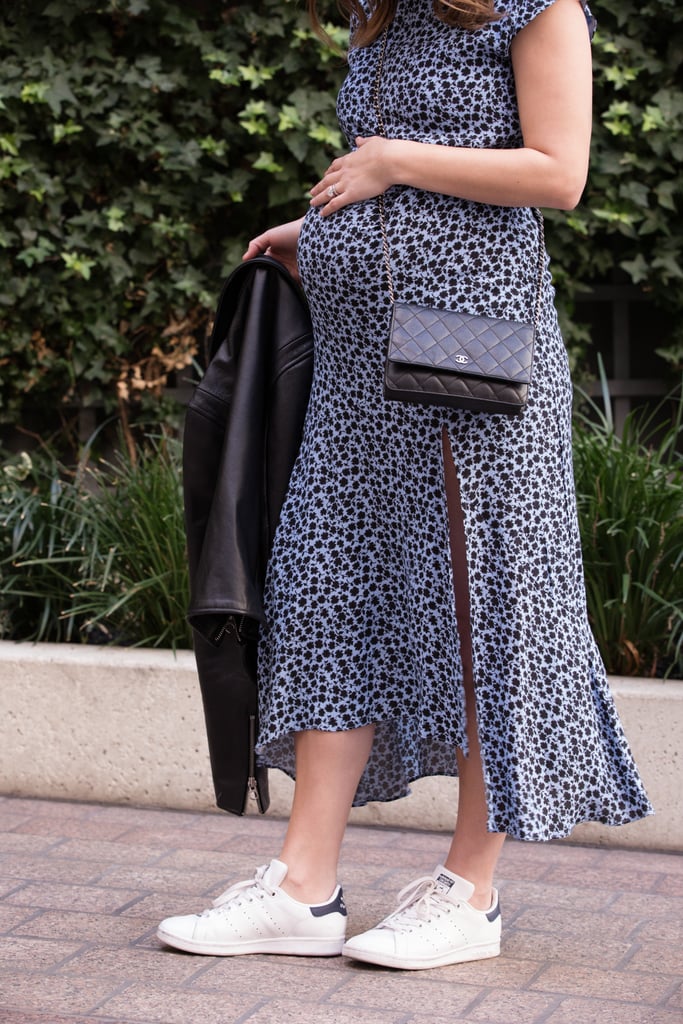
Studies and numbers only tell part of the story, so I wanted to talk to women who experienced motherhood at an older age.
Kimberly W., who lives in San Francisco and had her first baby at 40, opened up about some of the health issues she faced before, during, and after pregnancy. She started trying naturally at 38 and eventually moved on to IVF. Once she conceived, new problems came up.
"I had significant challenges during labor, including sepsis and hemorrhage. Then three surgeries to rectify it all," she shared. Kimberly now has functional hypothalamic amenorrhea, meaning her period has not returned, and is experiencing very low or nonexistent reproductive hormone levels. "It has been a rough ride and I'm sure it's somehow connected to age and what's required to be pregnant at this age," she said.
After her experience, Kimberly feels younger women shouldn't take their fertility for granted. "Despite the fact that most of us know that fertility decreases after 35, there is a strong message that many women are having babies later and that's OK," she explained. Kimberly pointed out that if you are career-focused or live in a global city, the women around you are likely having babies later. "The message is that it's fine, and knowing what I know now, it's not fine," she said.
Even so, Kimberly sees benefits to starting a family at 40: "I've learned a lot about myself and sought out a lot of experiences," she added. "I have useful perspectives that I can pass on to my daughter as she grows." Kimberly also feels confident about taking a break from her career to focus on parenting, a freedom she wouldn't have had when she was younger. "Financially, we feel ready," she said.
Katherine M., from Delray Beach, FL, had her first baby at 22 and then another at 38. In her county, the average age for first-time moms is 27, so Katherine knows what it's like to be a "young" mom and an "old" mom. "I find that I am more patient and not as concerned with appearances as I was when I was much younger," she told me.
"I've long ago outgrown the sort of imagination that a child has, so playing tedious pretend games with my toddler is much more agonizing than it was years ago with my first."

Katherine does miss the physical energy she had in her 20s, and she also notices that being further from her own childhood has impacted some of the mental endurance it takes to be a parent. "I've long ago outgrown the sort of imagination that a child has, so playing tedious pretend games with my toddler is much more agonizing than it was years ago with my first," Katherine admitted. "I find that I need more time to recharge, whereas with my first I never felt the need at all," she added.
Other older moms are going at it alone, which requires an even deeper well of energy. Stephanie K., from Phoenix, AZ, was 42 when she had her baby. "I'm single so that makes it even tougher," she said. "I can't complain, though. I have a beautiful daughter, and I feel like my life has meaning now."
"If I did this when I was younger, I would have freaked out about every little thing."
We can try to optimize our age, finances, or relationships for parenting, but those practical considerations likely don't outweigh the satisfaction that comes with becoming a parent when you really want to be one. And of course, older parents like Stephanie also take advantage of the upsides: "The best thing about being an older parent is that I take things in stride now. If I did this when I was younger, I would have freaked out about every little thing," Stephanie admitted, adding that she's less prone to overreacting now that she's in her 40s. Another thing she's starting to accept: the physical component of parenting. "My knees aren't what they used to be. It will be difficult to get down on the floor and play with her as she gets older. I'm not sure what workarounds there are, but I'm sure I'll come up with something," she said.
While older moms might have a harder time bending down, many of them also noted that they're more likely to have their overall lives together. Christina E., an American expat who currently lives in Dublin, Ireland, told me that she doesn't think the relationships she had in her 20s would have withstood the challenges of parenting. As mentioned above, she was 38 when her son was born, and today she also appreciates the financial stability she achieved before becoming a parent. "You make more money as you progress in your career. I finished paying off my student loans and bought a house while I was pregnant. If we'd had kids sooner and still had those payments, we'd really struggle to make ends meet," she explained.
"I worked crazy long hours, but also took exotic vacations, dated inappropriate men, shut down nightclubs then slept until noon, and moved abroad on a whim.”
Waiting to become a parent also meant Christina could embrace the lack of stability she had when she was younger — and enjoy a broad range of life experiences. "I lived in a tiny apartment in a big city. I worked crazy long hours, but also took exotic vacations, dated inappropriate men, shut down nightclubs then slept until noon, and moved abroad on a whim," she said. Now that she's older, Christina actually wants to be more settled. She's been able to match her new priorities with the inflexible demands of parenting without having to compromise the freedom she valued when she was younger. "I'm also so glad I had those experiences," she said. "There's no feeling that I might have missed out on anything."
Christina also believes that the confidence that comes with age helps you navigate the world of parenting. "Given all the judgement heaped on mothers, I find it easier to let that go. I can blow off comments that probably would have really upset me 10 or 15 years ago," she admitted. As for the cons, Christina pointed out that having kids later means you're automatically limiting the size of your family. "I was a very happy only child so that wasn't a big consideration for me," she acknowledged. The data confirms that delaying motherhood is tied to smaller families. As the average age of first-time motherhood is at an all-time high, the overall fertility rate in the US is at an all-time low, with an average of 1.8 births per woman. As a comparison, in 1960 it was at 3.65 births per woman.
Christina has also struggled to make mom friends. "In a group of other moms with children my son's age, I feel like the grandma in the room." Some people even point out to Christina that she will be nearly 60 when her son is old enough to be on his own. "To be perfectly honest, I'm not sure why people see that as a con. Parenting is not something we're trying to get over with so we can do our own thing again," she said. That's especially true if you're already satisfied with the time you had to yourself before becoming a parent — like Christina is.
"You can't start your family at 40 and reasonably expect to have five kids."
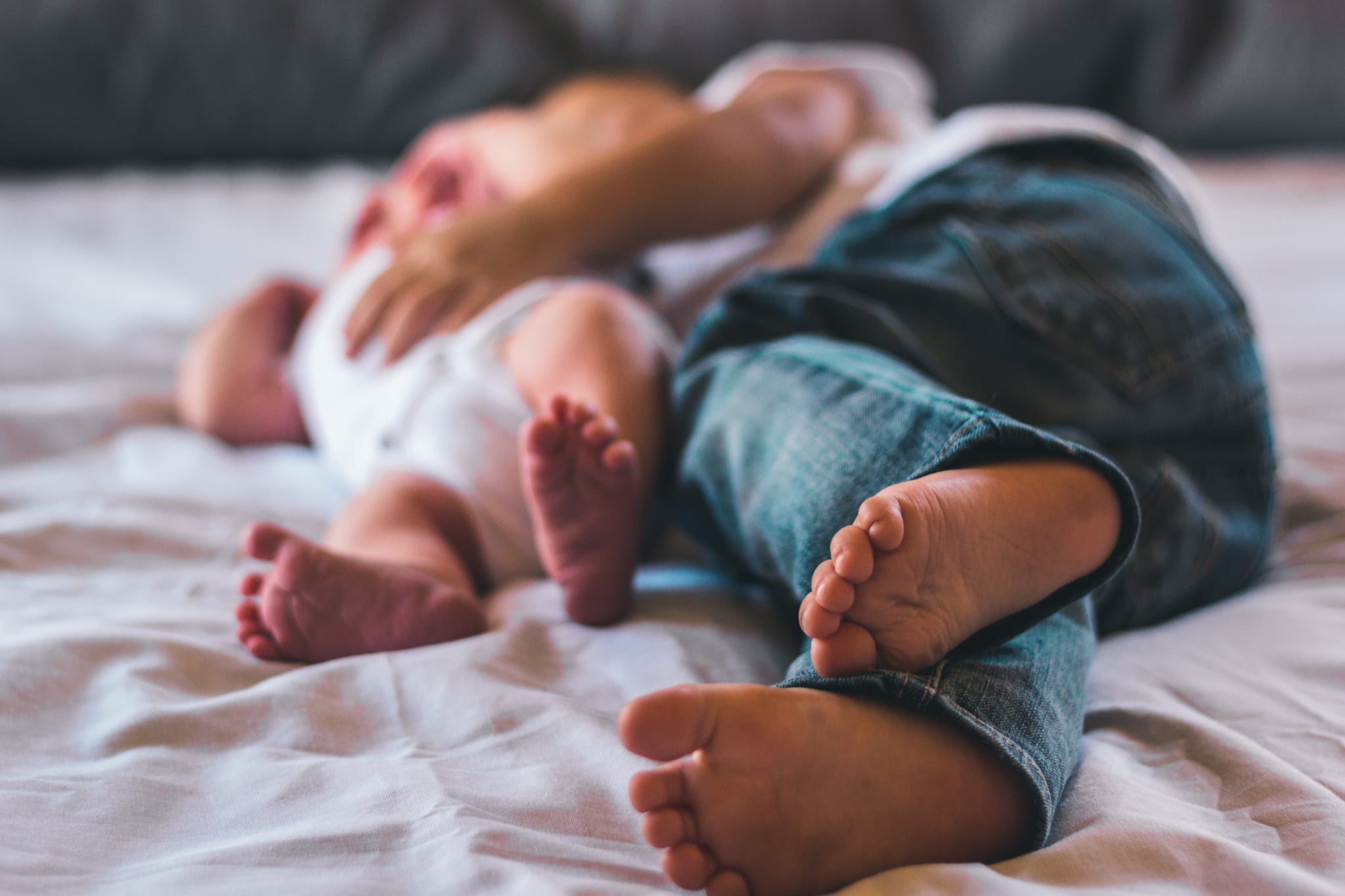
Kim R. was 31 and 38 when she had her kids. She lives in Dallas, where the average age of first-time motherhood is 26. Kim doesn't see stark pros and cons, but instead identifies both positive and negative aspects to each reality of being an older parent. For example, she said older moms have more life experience to inform their parenting decisions, but that can also make you more protective or less flexible. "I feel I might have been less overbearing had I given birth when I was more naive," she admitted. "I'm less spontaneous than I'd like to be. I have to consciously work at keeping their childhood light."
And while she has more financial stability, that also has a flip side: "I fear they are materialistic because they haven't grown up with the financial limits I had at their age. I should have decided ahead of time how to teach my kids minimalism instead of being so excited to give them everything."
"I feel less distracted by professional aspiration and can focus on family without apology or regret."
Kim also regrets that her kids won't have as much time with their grandparents, but she aims to turn this downside into a potential opportunity: "This inspires us to make the most of the time we do have and to establish a multigenerational family identity through telling stories about extended family members." The clock might also be against older moms when it comes to spending time with their own grandchildren. An older mom might have to wait until she's in her 70s to meet her grandchildren, if her own kids delay parenthood, too. Of course, individual life expectancies can vary, and it's hard to predict what will happen so far in the future.
One area where Kim sees a clear advantage: her work-life balance. "I'm glad I can devote my best to my kids, knowing they are the only ones I'll be able to have and I only have one shot at this. I feel less distracted by professional aspiration and can focus on family without apology or regret, having already pursued my dream jobs and established myself in my field when I couldn't have kids."
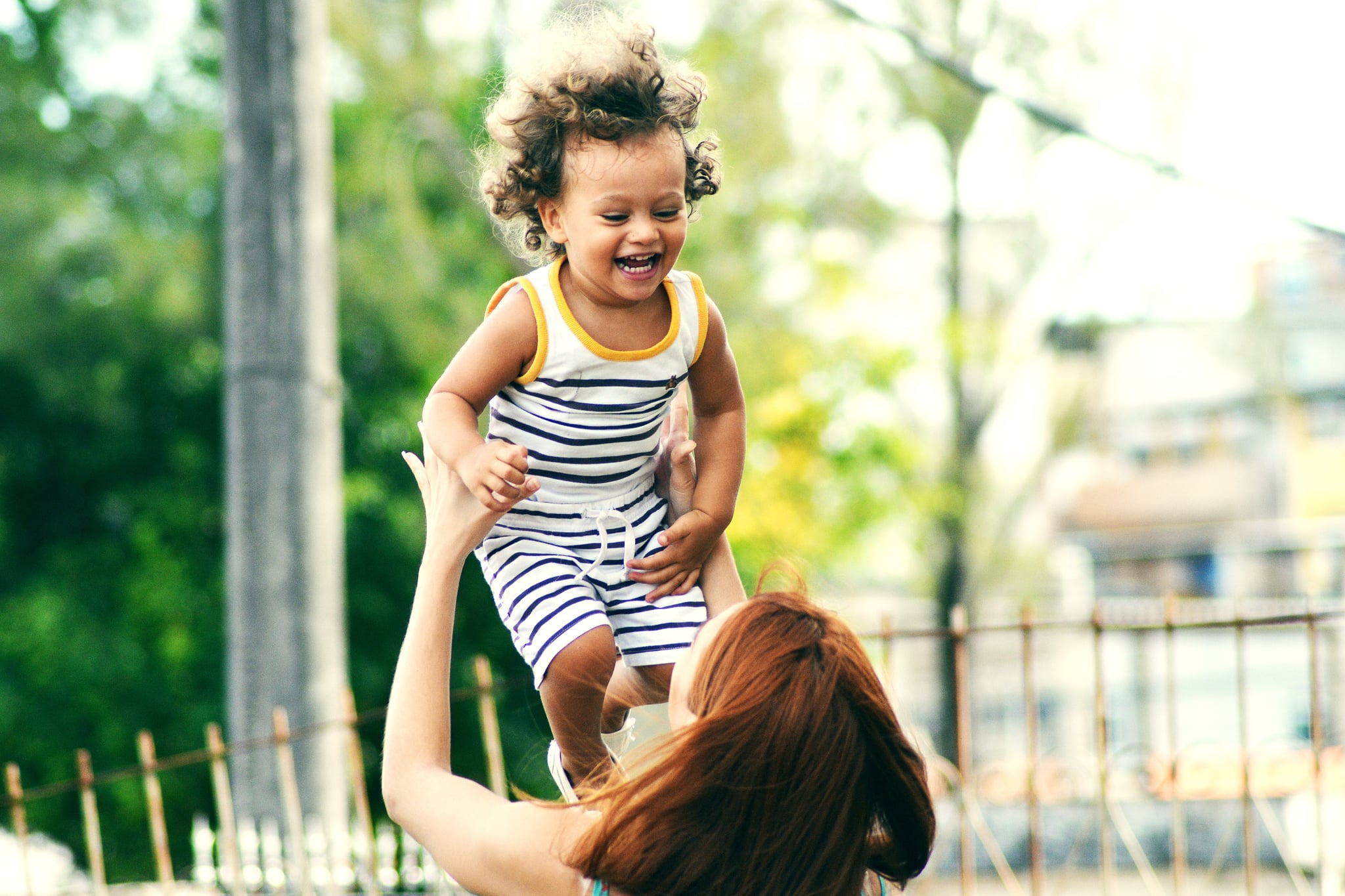
What Older Motherhood Requires of Society
Over the past five decades, the national age of first-time motherhood has risen about five years. That's enough to start having greater implications on fertility rates, especially in places where the average age is in the early 30s. "It may seem like a gradual rise, but it means we're piercing into an age frame where a woman's natural fertility begins to decline," explained Jake Anderson-Bialis, the cofounder of the online resource FertilityIQ.
"Nobody will benefit more than the fertility industry as the age of first-time mothers drifts into the mid 30s," Anderson said. "The data still shows most people want a second or third kid, and if you're starting at 35, you're probably still trying to build your family into your 40s. For some that can invite real challenges," he continued. Anderson predicts that along with the rise of egg freezing, fertility centers will advise women and couples to start banking embryos before 35. "They'll say if you want two or three kids, come see us, because when an issue arises having that second or third kid, you'll be wishing you dropped in five or seven years ago," he said.
"Nobody will benefit more than the fertility industry as the age of first-time mothers drifts into the mid 30s."
Still, we shouldn't assume that any woman over the age of 35 needs help getting pregnant. Infertility impacts women in their 20s, too, and plenty of women can naturally conceive well into their 40s. But as more people try to conceive at older ages, more might need help getting pregnant with treatments like intrauterine insemination (IUI) or in vitro fertilization (IVF). These treatments come at a price that puts parenthood out of reach for many. If society doesn't find ways to address this cost and general inequality, a person's socioeconomic status could decide whether or not they become a parent. One solution is requiring insurance to cover infertility treatments, as is the case in a few states already.
Only an individual can decide when is the best time to start her family. But in order to make it a real choice, there must be ongoing access to abortion and contraception, coverage for infertility treatments, and policies that make it possible to have a career and raise a family, like maternity leave and free preschool. You can't decide to delay motherhood if you don't have access to family planning and fertility services, and it's hard to have a family in your 20s if you can't afford it. Meaningful policy changes would help all parents: the "young" and the "old."
*Women identified by first and last initial for privacy considerations.